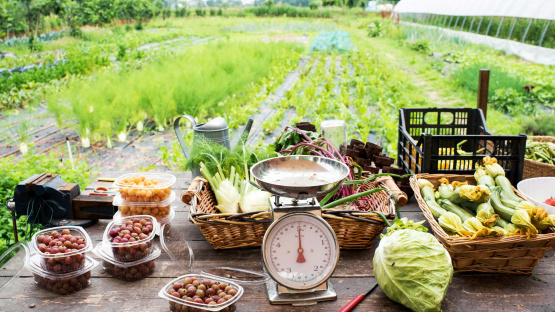Small-scale crop farming in Nigeria is becoming an increasingly attractive investment opportunity. Here are ten reasons why you should consider putting your money into this sector:
1. Food Security Contribution: Nigeria faces ongoing food security challenges. By investing in small-scale crop farming, you’re directly contributing to increased food production and helping to meet the nation’s nutritional needs.
2. Lower Initial Capital Compared to large-scale farming or other agricultural ventures, small-scale crop farming often requires less initial investment. This lower barrier to entry makes it accessible to a wider range of investors.
3. Government Support: The Nigerian government has implemented various policies and programs to support small-scale farmers. These include subsidies on inputs, access to low-interest loans, and extension services, which can significantly boost your farming venture.
4. Diverse Crop Options: Nigeria’s varied climate allows for the cultivation of a wide range of crops. From staples like cassava and yam to high-value crops like vegetables and fruits, you have numerous options to suit your interests and market demand.
5. Quick Returns: Many crops, especially vegetables, have short growing cycles. This means you can see returns on your investment within a few months, allowing for multiple harvests per year.
6. Growing Urban Markets: With increasing urbanization, there’s a rising demand for fresh, locally-grown produce in Nigeria’s cities. Small-scale farms are well-positioned to meet this demand, often commanding premium prices for quality, fresh products.
7. Technology Integration Advancements in agricultural technology are making small-scale farming more efficient and productive. From improved seed varieties to mobile apps for farming information, these tools can significantly enhance your farm’s performance.
8. Environmental Sustainability: Small-scale farming often employs more sustainable practices compared to large-scale industrial agriculture. This aligns with global trends towards environmentally friendly food production.
9. Community Impact: By investing in small-scale farming, you’re not just building a business; you’re contributing to rural development. Your farm can provide employment opportunities and stimulate the local economy.
10. Scalability: Starting small doesn’t mean staying small. As you gain experience and capital, you can gradually expand your operations, diversify your crops, or venture into value-added processing.

While small-scale crop farming offers these exciting prospects, it’s important to note that like any investment, it comes with challenges. Weather uncertainties, pest management, and market fluctuations are factors you’ll need to navigate. However, with proper planning, education, and risk management strategies, these challenges can be effectively addressed.
Before starting your farming venture, it’s crucial to conduct thorough market research, develop a solid business plan, and possibly seek advice from experienced farmers or agricultural experts. Consider factors like soil type, water availability, and proximity to markets when choosing your farming location and crops.
With the right approach, small-scale crop farming in Nigeria can be a rewarding investment that not only generates profits but also contributes significantly to food security and rural development. Whether you’re looking for a side hustle or a full-time business opportunity, small-scale crop farming offers a path to both financial returns and meaningful impact.
Interested in investing in livestock farming? Check out compelling reasons to invest in your livestock farming
Bravewood is licensed by the Central Bank of Nigeria to provide investments with low risk and high returns for Nigerian professionals.

